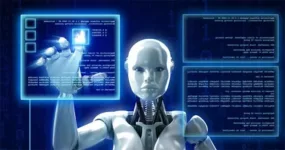My favorite event to attend every year is NVIDIA’s GTC, or GPU Technology Conference. I would humbly suggest the conference be renamed since the show has evolved to be much more about the near-term future of technology across robotics, automobiles, metaverse, and AI. Next week the event will be held virtually again. It is well worth your time if you want to get a feel for what will be coming to market over the next two to four years because this event is a showcase of the closest thing we have in the market to real magic.
By real magic, I mean our ability to make what we can imagine real, either in the metaverse or in the material world.
Let us talk about some of what you will see at the event, and some potential surprises we will see at this or future GTCs. Oh, and before we start, if you want to sign up for the event, you can do that here.
Robotics
This is fascinating to me because, years ago at Dell Technology World, Dell had a futurist talk about robotics being the future for what was then, and now, the computer business, at least in terms of its market potential. Since then, Dell and every PC OEM, with the recent exception of Lenovo, has seemed to do everything possible to avoid that market.
NVIDIA is the exception, and its technology forms the foundation for current and future robotic development. From simulation and training in its Omniverse platform to the deployment of intelligent machines in a growing range of highly automated factories, farms, warehouses, and even homes.
If you want to see what comes next in the technology that you will eventually use at work or in the home, these GTC robotics sessions are a must-see. Session titles include “A perspective on the future of robotics and its use cases in logistics and smart transportation,” “The next wave of edge AI and robotics,” and “Leveraging simulation tools to develop AI-based robots.”
Intelligent Video Analytics
Creating AIs that can see — and understand what they see — is not only critical to robotics but has broad applications to autonomous vehicles, security, safety, smart buildings, and smart cities. If you want to get a sense of how this technology will change how our working and living spaces will be able to become physically safer, more responsive to our needs, and less frustrating, there are a few sessions in this segment that look particularly interesting.
The interesting sessions are a panel on “Accessing the value of infrastructure smart spaces,” which addresses smart buildings and cities, and “Tracking objects across multiple cameras made easy with Metropolis microservices,” which potentially addresses physical safety and convenience.
Automotive
Automobiles are going through massive changes as they transform from ICE (internal combustion engines) to electric propulsion and from being driven by people to being driven by AIs with the promise of both higher safety and far more convenience. These changes may impact whether we even need to own cars, which are currently an overly expensive and underutilized personal luxury. You will find me watching a number of these sessions right along with you because cars, for me, are both a critical tool and one of my hobbies.
Sessions to look for are “Building future-ready intelligence cars,” “Developing software defined vehicles for the new era of transportation,” “Elevating the passenger experience with intelligent in-vehicle infotainment,” and, for those new to this segment, “Introducing autonomous vehicles.”
There is a lot of misinformation in the market about this technology. If you want to know what is going on and anticipate what you should look for in your next car, that last session alone should be incredibly helpful. Oh, and my old friend Dean Takahashi from Venture Beat is hosting a panel on the opportunity of the industrial metaverse with some heavy hitters from Magic Leap, Siemens, and Mercedes-Benz, which should be fascinating.
Wrapping up: A hint of what is to come
NVIDIA’s GTC represents what I think is the best place to see what is coming from advanced technology, particularly regarding the application of next-generation tools like the metaverse and advanced intelligent robotics. But I was watching Seth MacFarlane’s Orville the other day (it is a fascinating series now on Hulu that, for me, reminds me of Star Trek at its best) and it struck me that one of the potential benefits of the advanced metaverse tools, particularly NVIDIA Omniverse, is that it could make shows like this both far better, in terms of special effects, and far less expensive to produce assuring they don’t end prematurely like Babylon 5, Brisco County Jr., and especially Firefly did.
So, for me, this show goes beyond the practical applications of robotics, advanced AI vision technology, and autonomous vehicles into entertainment and visions of a future of even more compelling stories of metaverses that we would like to live in. If you can find the time, GTC is a must-attend event that takes me away from the dire news that increasingly otherwise fills my day and gives me hope for a better tomorrow.








